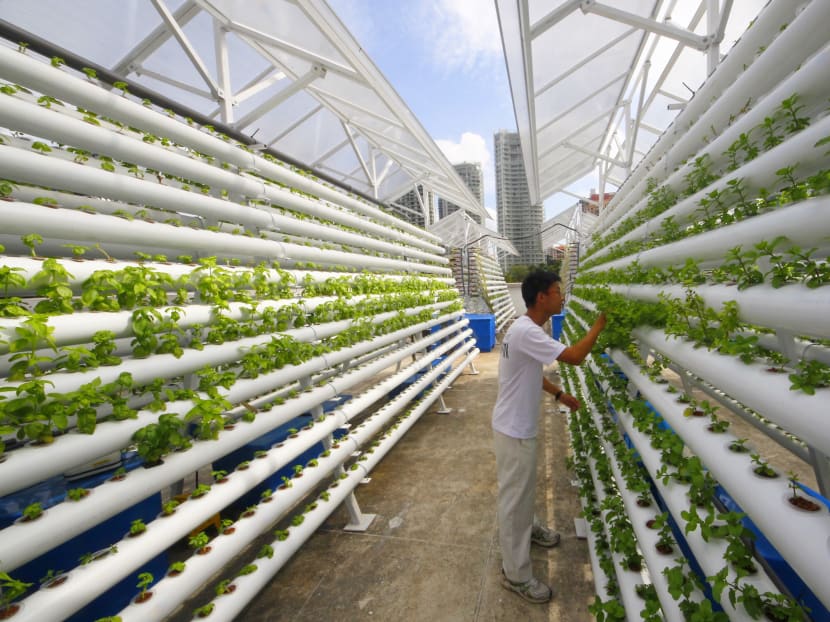Singapore tops index measuring food security, but vulnerable to trade and climate-related risks
SINGAPORE — The Republic has for the first time topped the Global Food Security Index, which measures the affordability, availability and quality and safety of food sources in 113 countries.
SINGAPORE — In a first for Singapore, the Republic has topped the Global Food Security Index, which measures the affordability, availability, quality and safety of food sources in 113 countries.
This is an improvement from its fourth position last year.
However, the index by the Economist Intelligence Unit (EIU) highlighted Singapore's vulnerability to climate-related and natural resource risks, which is not reflected in the overall ranking.
Taking risks such as exposure to climate change (temperature rise, drought, flooding, etc) and the health of land and water resources into account, Singapore ranks 16th among the 113 countries, with Switzerland at the top.
“Singapore’s strong food-security score is largely attributable to its status as a high-income economy,” said the report, noting that the country’s GDP per capita has risen by nearly 30 per cent since 2012, and the percentage of household expenditure that is spent on food is the second-lowest in the index.
“The country also has the lowest agricultural import tariffs of any country in the index, which helps to reduce food import costs.”
While climate and natural resource risks pose a threat to all countries, especially higher-income countries, the EIU highlighted Singapore as being "most susceptible" to these risks.
"When applying the natural resources and resilience category as an adjustment factor, average food-security scores for high-income countries fall further than for any other income group," the report said.
Singapore is also vulnerable to trade and supply chain disruptions which can drive up food costs, the EIU noted.
Singapore today imports over 90 per cent of its food from about 180 countries, while the remainder are from local farms and landing, according to data from the Agri-Food and Veterinary Authority of Singapore.
"Countries lacking self-sufficiency in food production must rely on trade to fill the gap, but this reliance means that trade-dependent countries are vulnerable to shifts in the trade policies of food-exporting nations, including export bans," the report said.
Rising protectionist sentiment around the world and the global trade tensions make importing countries especially vulnerable.
For example, tariffs imposed by China on United States-origin soybeans in July last year caused Chinese buyers to cancel orders from the US and find new soybean sources at higher prices, causing consumer prices to increase.
The 2018 report, which is sponsored by chemical company DowDuPont's Corteva Agriscience division, is the seventh such index focused on the role of resilience in food security.
"Sometimes the causes of worsening food security can seem obvious — crop failures, armed conflict and hyperinflation are just a few of the culprits that can precipitate a crisis," the EIU said.
"However, it is essential to understand the myriad contributing factors that influence the severity and impact of a particular shock and recovery from it in order to build better food systems that can absorb and adapt to change — in short, to build resilience."
Overall, the global food security outlook for 2018 has improved, with more than 70 per cent of countries on the index registering improved scores from the preceding year. Lower-middle- and low-income countries experienced the most substantial gains.
The US, which previously topped the index between 2012 and 2016, fell to second spot in 2017, and is currently third. Leading the decline was Venezuela, where the food-shortage situation driven by an economic crisis is "critical".
Slovakia overtook Denmark as the top-ranking country in the natural resources and resilience category, which was only added to the annual index in 2017.
The category "is an adjustment factor that serves as a lens through which overall food security can be viewed to demonstrate changes to the overall score when climate-related and natural resource risks are taken into account," the EIU said, adding that this gives one the option whether to take the risks into account.
Global climate change remains a threat on the horizon, and "will pose unprecedented risks to food supplies, in tandem with (and often exacerbating) ongoing financial, social and political, and trade and supply chain risks," it warned.
"As uncharted territory makes anticipation more difficult, preparations must be made to build more resilience into food systems."
Clarification: An earlier version of this story said Singapore today imports 90 per cent of its food from about 180 countries. The Agri-Food and Veterinary Authority of Singapore has clarified that Singapore imports over 90 per cent of its food.










